Publications
Articles, publications, books, tools and multimedia features from the U.S. Institute of Peace provide the latest news, analysis, research findings, practitioner guides and reports, all related to the conflict zones and issues that are at the center of the Institute’s work to prevent and reduce violent conflict.
Question And Answer
Amid a Changing Global Order, NATO Looks East
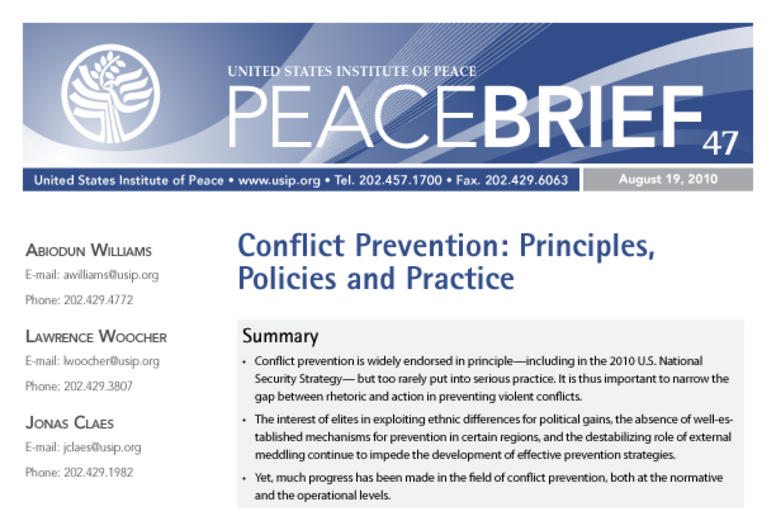
Conflict Prevention: Principles, Policies and Practice
On July 1, 2010, the U.S. Institute of Peace organized an all-day conference entitled "Preventing Violent Conflict: Principles, Policies, and Practice." The goals of this conference were to spotlight the importance of conflict prevention, to foster productive discussions between leading scholars and distinguished practitioners, and to identify priority areas for future work on conflict prevention by the Institute and the field at large. This Peace Brief provides an overview of that day's disc...
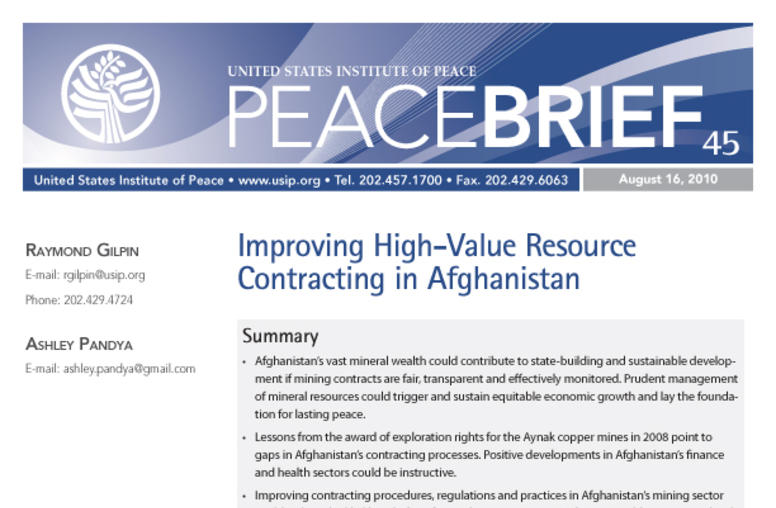
Improving High-Value Resource Contracting in Afghanistan
Afghanistan’s vast mineral wealth could contribute to state-building and sustainable development if mining contracts are fair, transparent and effectively monitored. Prudent management of mineral resources could trigger and sustain equitable economic growth and lay the foundation for lasting peace.
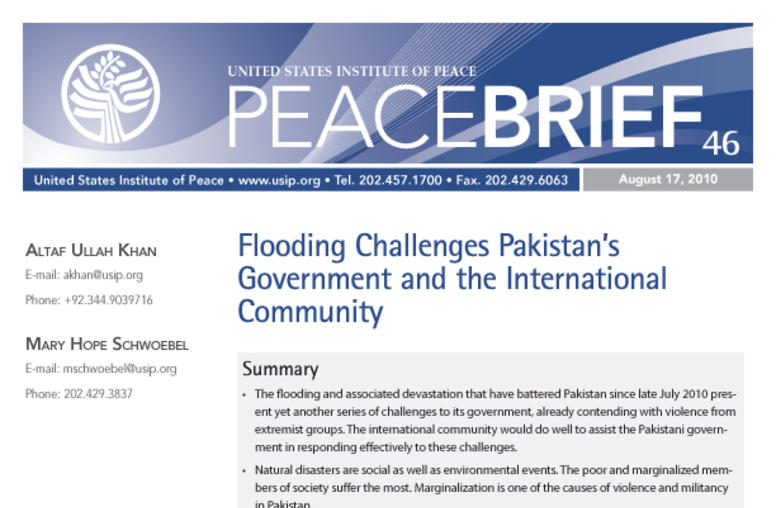
Flooding Challenges Pakistan's Government and the International Community
The flooding and associated devastation that have battered Pakistan since late July 2010 present yet another series of challenges to its government, already contending with violence from extremist groups. The international community would do well to assist the Pakistani government in responding effectively to these challenges.
On the Issues: Iraq in Transition
By the end of August, the number of U.S. troops in Iraq will be 50,000. After a seven-year military presence, the U.S. will shift to a civilian-led effort in Iraq. This unprecedented transition takes place at a key time as Iraq tries to form a new government after the March 2010 elections. USIP’s Sean Kane, Manal Omar and Daniel Serwer, who all recently visited Iraq, share their views on Iraq and what this transition means for Iraq’s future and the United States.
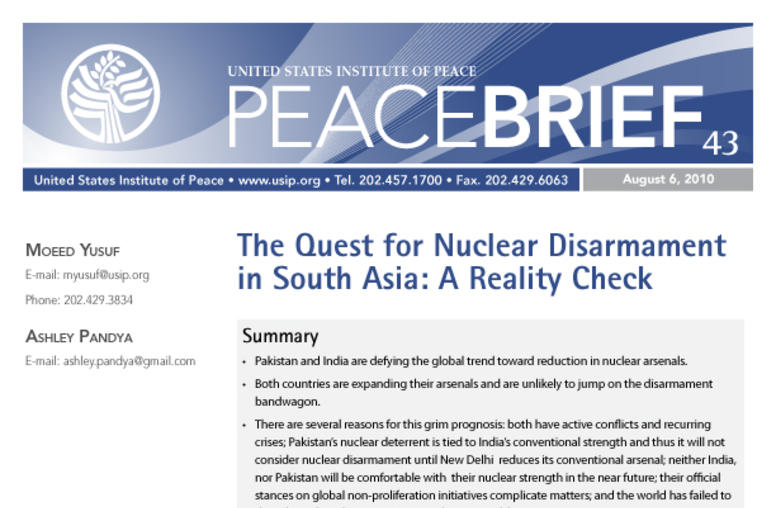
The Quest for Nuclear Disarmament in South Asia: A Reality Check
Pakistan and India are defying the global trend toward reduction in nuclear arsenals. This Peace Brief looks at several reasons for this prognosis.
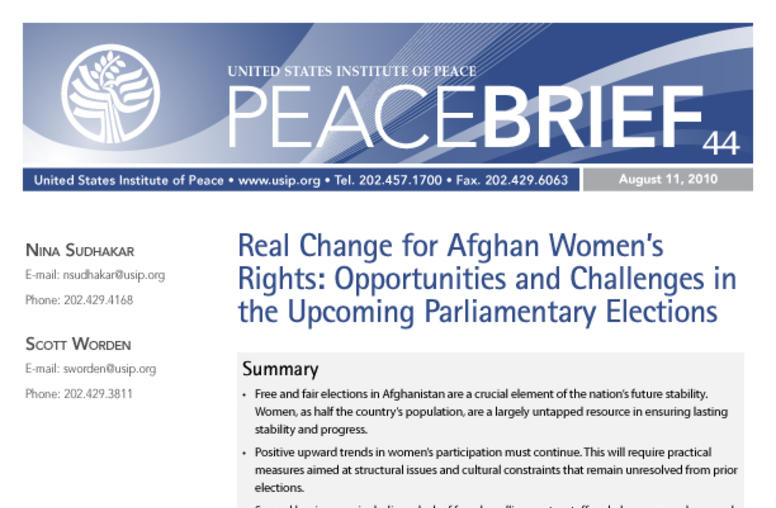
Real Change for Afghan Women's Rights: Opportunities and Challenges in the Upcoming Parliamentary Elections
This Peace Brief highlights key issues that must be resolved to ensure Afghan women’s continued political participation in the upcoming parliamentary elections on September 18, 2010 and beyond.
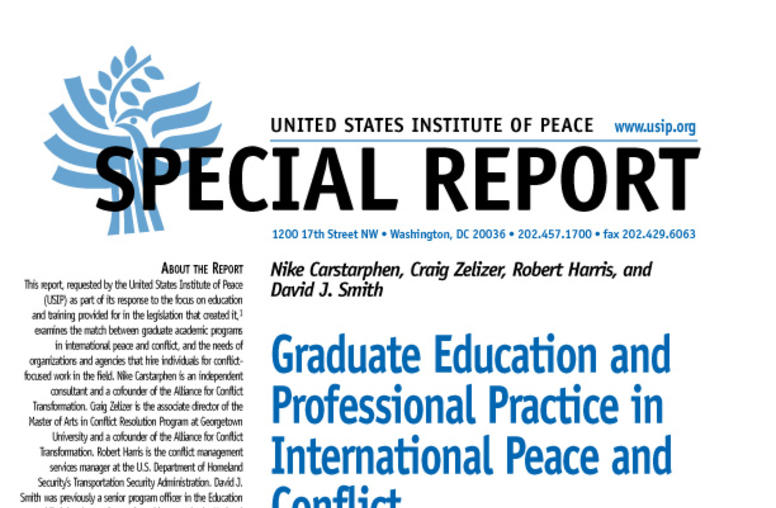
Graduate Education and Professional Practice in International Peace and Conflict
This report, requested by the United States Institute of Peace as part of its response to the focus on education and training provided for in the legislation that created it, examines the match between graduate academic programs in international peace and conflict, and the needs of organizations and agencies that hire individuals for conflictfocused work in the field.
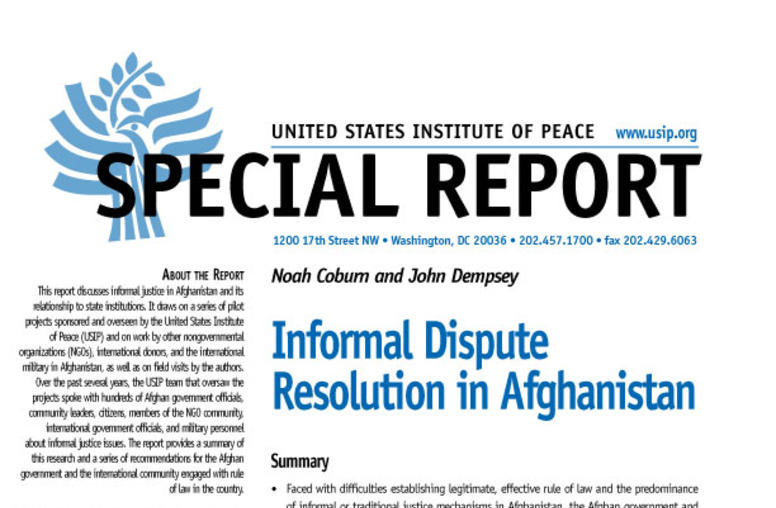
Informal Dispute Resolution in Afghanistan
This report discusses informal justice in Afghanistan and its relationship to state institutions. It draws on a series of pilot projects sponsored and overseen by the United States Institute of Peace (USIP) and on work by other nongovernmental organizations (NGOs), international donors, and the international military in Afghanistan, as well as on field visits by the authors.
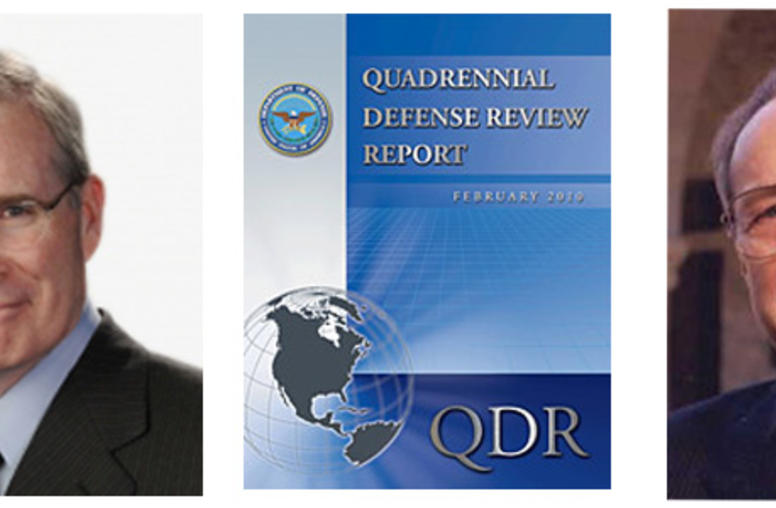
William J. Perry and Stephen J. Hadley Testify on the "Quadrennial Defense Review Independent Panel"
William J. Perry and Stephen J. Hadley testified on August 3, 2010 on the "Quadrennial Defense Review Independent Panel" before the Senate Armed Services Committee.
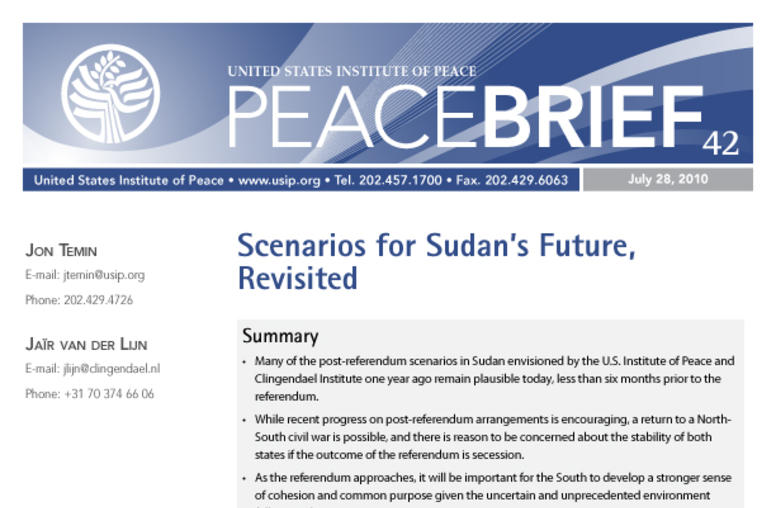
Scenarios for Sudan's Future, Revisited
Many of the post-referendum scenarios in Sudan envisioned by the U.S. Institute of Peace and Clingendael Institute one year ago remain plausible today, less than six months prior to the referendum.